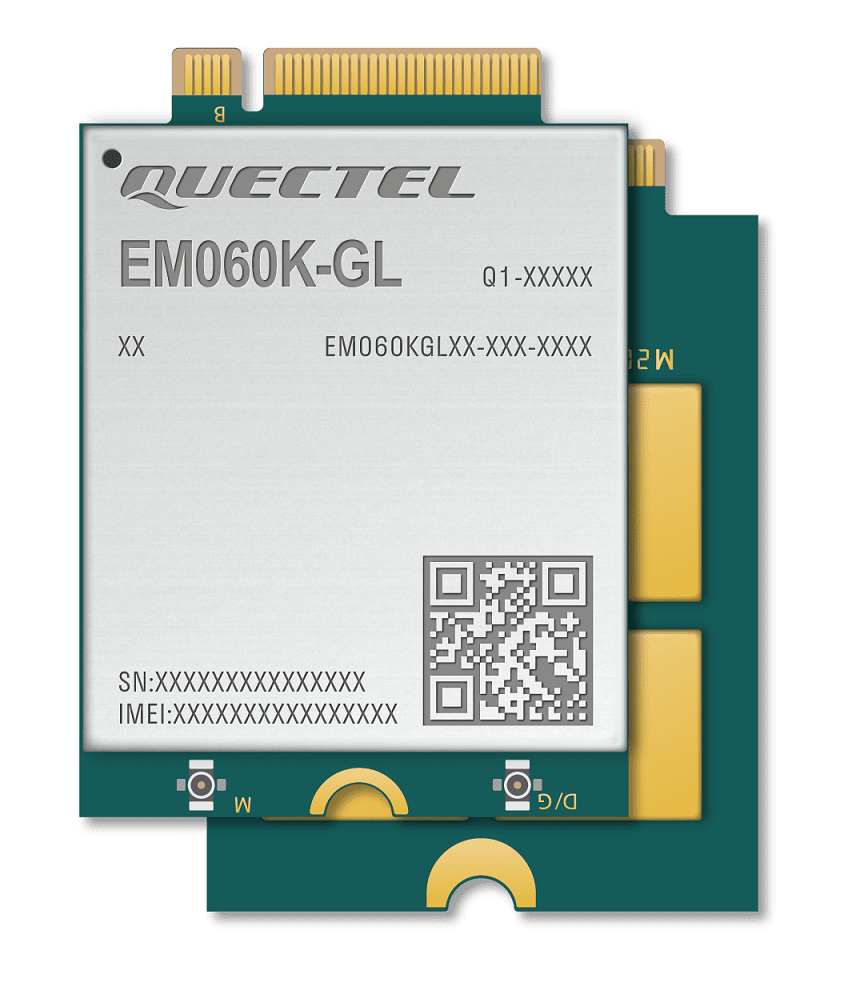Recently, Quectel Communication, a global leader in IoT solutions, announced that its advanced LTE-A module Quectel EM060K-GL has been included in Google’s Chrome OS certified supplier list. Subsequently, it will be considered as a candidate module for integration into Chrome OS-based laptops, providing an “always connected” network experience. This significant milestone highlights Quectel Communication’s commitment to providing high-quality and highly reliable IoT products, solidifying its position as a leading innovator and preferred ecosystem partner in the IoT industry.

In the IoT ecosystem, the reliability, transmission speed, and security of connected devices such as PCs are crucial. The selection of EM060K-GL demonstrates its compliance with Google’s rigorous standards for connectivity, security, and performance. This inclusion will facilitate its application in more scenarios and collaboration with Google’s extensive business and terminal devices, opening up new opportunities.
Norbert Muhrer, President and Chief Sales Officer of Quectel Communication, expressed, “We are delighted to see EM060K-GL listed as a supplier for Google Chrome OS. This validates Quectel’s team relentless pursuit of cutting-edge technology and products, dedicated to providing more comprehensive IoT solutions to the market, enabling seamless integration with products from key ecosystem partners. We look forward to deepening our collaboration with Google and OEM manufacturers to bring innovative products to global customers and explore more comprehensive and innovative applications.”

Outstanding Performance
As a high-performance LTE-A Cat 6 module, Quectel EM060K is based on the Qualcomm Snapdragon® X12 LTE modem, utilizing 3GPP Release 12 technology. It offers peak download speeds of up to 300 Mbps and peak upload speeds of 50 Mbps, providing smooth high-speed network experiences for applications such as industrial laptops, consumer laptops, home gateways, industrial routers, CPEs, HD live broadcasting, smart grids, smart mines, and robotics.

In terms of design, the EM060K-GL module adopts an M.2 form factor with dimensions of 30.0mm x 42.0mm x 2.3mm, capable of stable operation within a wide temperature range from -25°C to +75°C. In addition, customized module models have been designed by Quectel to better meet the application needs in the EMEA region.
Quectel EM060K-GL module incorporates dedicated power-saving technologies to maximize terminal operating time. It also offers optional features such as eSIM, dual SIM single standby, and multi-constellation GNSS receivers, along with rich network protocols, integration of multiple industrial standard interfaces, and support for various drivers and software functions, meeting diverse hardware and software demands of IoT products.
Effective Compatibility
Considering the broad application scenarios and development convenience for customers, Quectel Communication provides a range of high-quality antennas tailored for EM060K-GL, ensuring seamless connectivity with the module. This “module + antenna” one-stop solution not only eliminates compatibility testing issues with third-party antennas, ensuring smoother terminal integration processes, but also enhances overall communication system reliability and effectiveness, delivering streamlined and cost-effective solutions for customers. Apart from antennas, EM060K-GL is also compatible with various other Quectel product series such as Cat 6 modules EM06, Cat 12 modules EM12 series, Cat 16 module EM160R-GL, as well as 5G modules RM500Q, RM520N, RM550V, and RM255C series, effectively reducing customers’ R&D costs and time to market during terminal upgrades.
Quectel Communication’s module products consistently prioritize security. From product architecture to firmware/software development, they adhere to industry-leading practices and standards. This includes undergoing independent testing by third-party organizations to mitigate potential vulnerabilities, as well as implementing security practices such as generating SBOM and VEX files and firmware binary analysis throughout the software development lifecycle, ensuring product security and reliability.